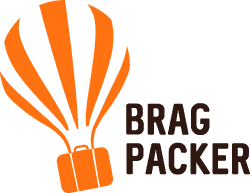With a burgeoning cash crisis in the country, travellers might be feeling the pinch – but we’ve got the fix!
Travel budgets are often a tricky subject for even the most seasoned traveller. No matter how meticulously you think through, you will end up spending more than you initially intended to – after all, it is a vacation and temptations abound. While that’s fine and unavoidable, the discretionary spend on day to day cash expenses is where the real difference can happen, between the budgeted and the actual bleeding of cash. So, in these times of #demonetisation, here are some simple tips to rescue your trip from the cash crunch:
Allocate a fixed daily budget: Do the math before you set out for your vacation and know the amount you can’t exceed on a daily basis on discretionary spends such as food, knick- knack shopping and transport. For example, in Western Europe you can do quite a lot in 60-80 Euros for a couple. If you are travelling as a large family, it may make sense to have a daily, individual and common, budget so everyone can take responsibility of their own spends. Of course, leave some scope for flexibility – like spending a little extra on that 3 gelato and walking back instead of taking a cab!
Do your research: Saving money takes a lot of work in terms of research and informed decision making, which is why it’s so hard to do. All the information is easily available on the internet; spend some time educating yourself on what is the best deal you can get on things like walking tours and travelling once you get to the destination. In other words, spend time on research and save in terms of cash.
Don’t be a tourist: Like we always say at Bragpacker, more than money can be gained from refraining from getting sucked into the tourist trap. Keep your eyes on where the locals prefer to eat – not only will it save you some cash, it will also probably be the best food of the region. Same with transport – utilise the local transport instead of booking cabs for a more authentic experience and a good bargain.
Beware of extra charges: Tolls, entry fees, other taxes can add up to a neat pile and are often hidden when making bookings fall be easily avoided. Again, it takes a little research to know about some museums that may have free entry on some days, or about a free street music festival. Another unnecessary charge is paying for extra luggage – know the luggage guidelines for the airline you’re taking and keep the weight in check (check out our blog on guide to baggage allowance and charges, here).
VAT Refunds: Many countries, especially in Europe, offer a full refund on VAT for tourists at the airport on your way out. It takes some amount of persistence and resilience but maintain your bills and receipts, and if you manage to get your refund, you’ve actually made some money at the end of your trip!
Plug your downside: Medical emergencies, apart from being a terrible thing on trips, can drain cash like nothing else. Always ensure you have travel insurance that protects you from major downsides in expenses. Losing bags, cancelled and missed slights etc are other events that can make a huge dent on your travel budget. Think the risks of such events through when deciding on destinations and your itinerary. Check out the tag8 products listed on Bragpacker to significantly increase your chances of finding your gear back. Most travel insurance also include protection from cancelled flights etc – check the fine print for how you can make your claim.
Local Transport: This is typically a big drain on day to day cash spend, especially if you are averse to walking too much. Many Indians habitually shun public transport but taking onboard a little discomfort by using the metro/bus/ bikes can help save those daily dollars that can make or break your budget. For longer trips, renting a car is likely to be the cheapest and the most fun way to travel although a bit unnerving the first time.
Food: Simple things like staying in BnBs or breakfast included reservations, carrying a water bottle to refill from drinking fountains etc, buying basic snacks/ prepacked meals from the super market locally etc can again save you a lot of cash without taking away from the experience. You can still splurge on the Michelin star restaurant and strike a balance at other times by avoiding eating at restaurants for every meal.
Of course, the best way to save up cash even before you begin your trip is to rent all your travel gear before embarking on the holiday – check out our catalogue here. With our daily rentals as low as 1% of MRP, you will save big on your pre-travel shopping.


